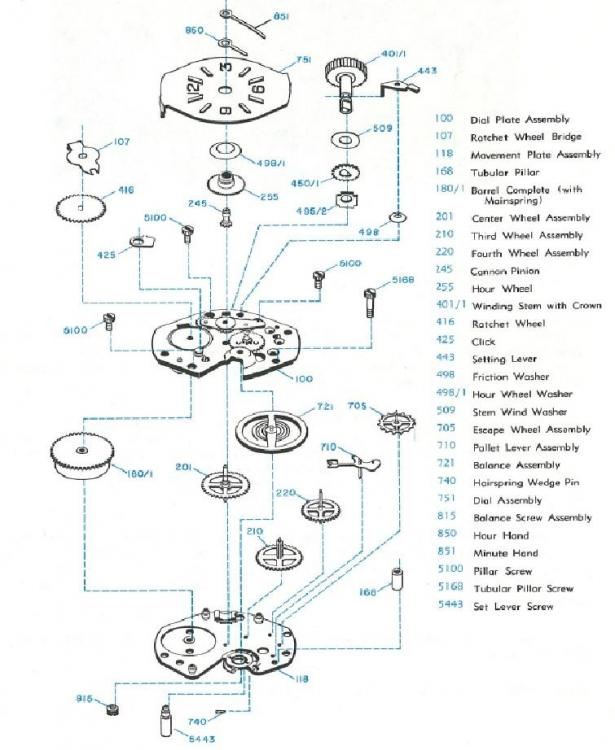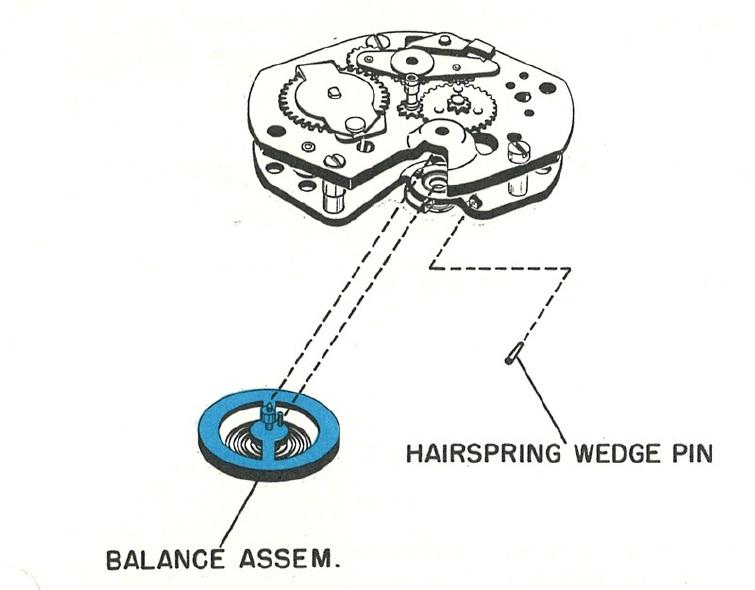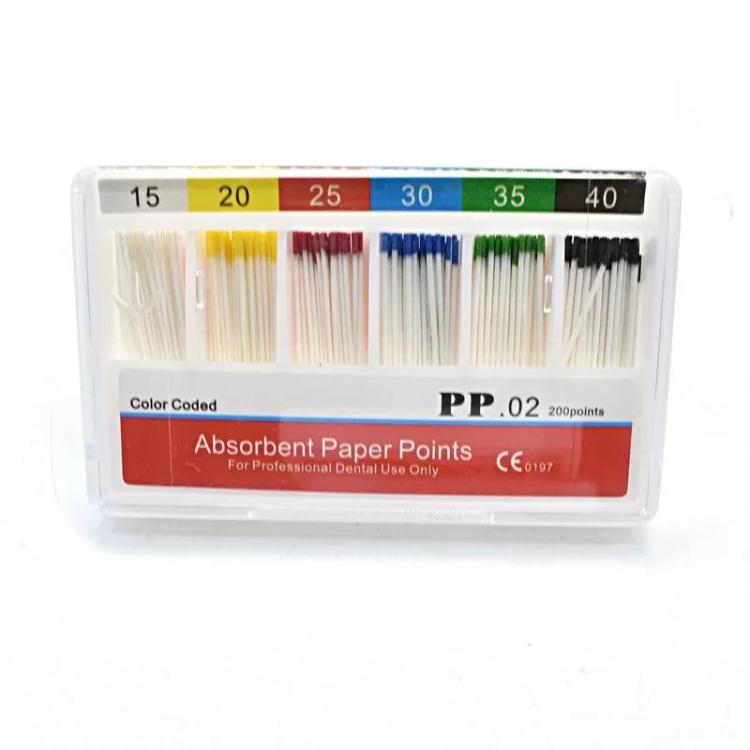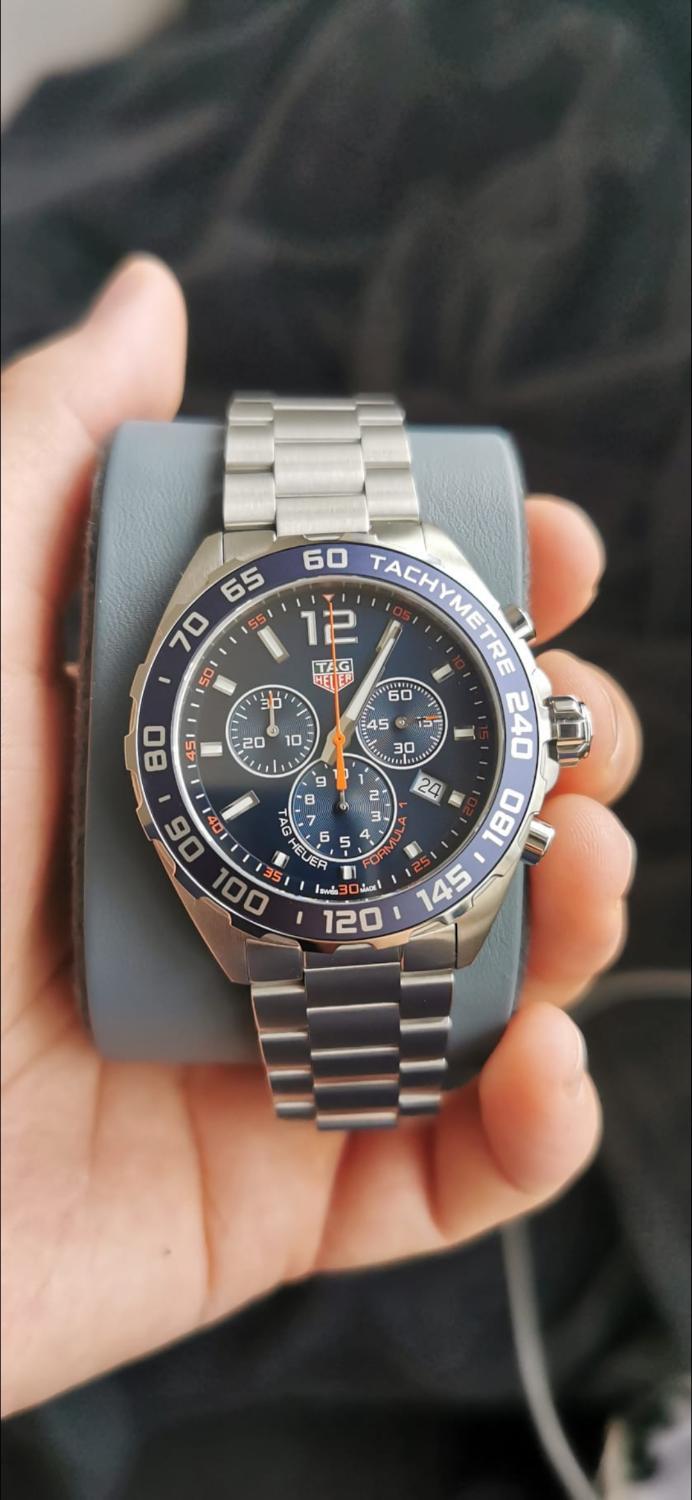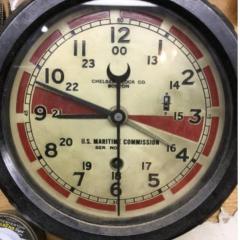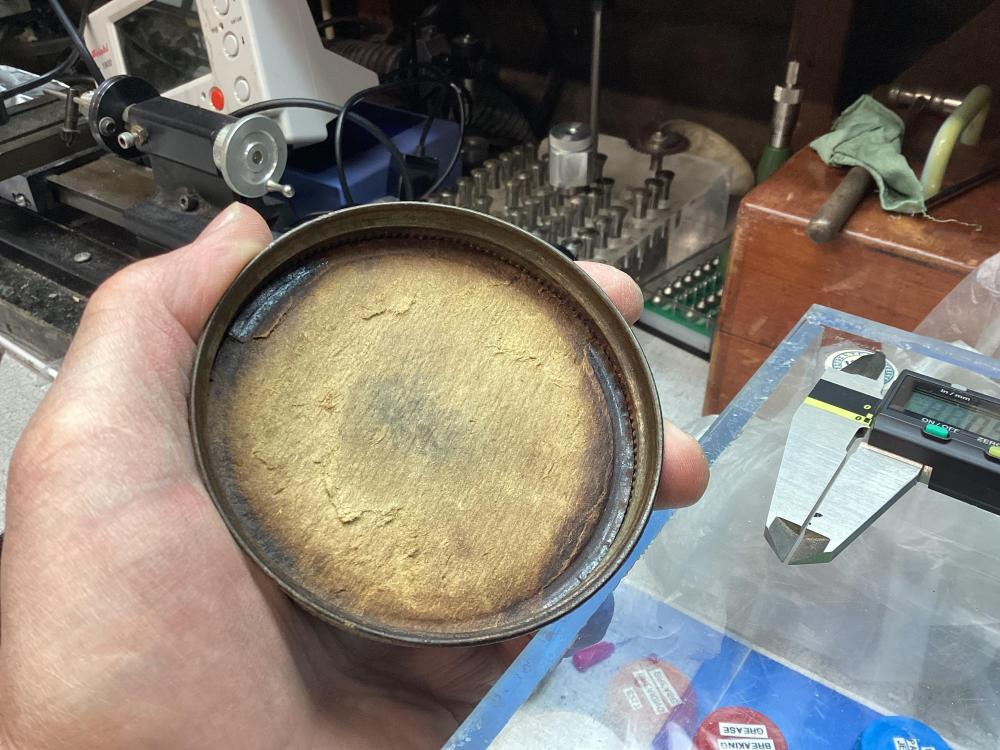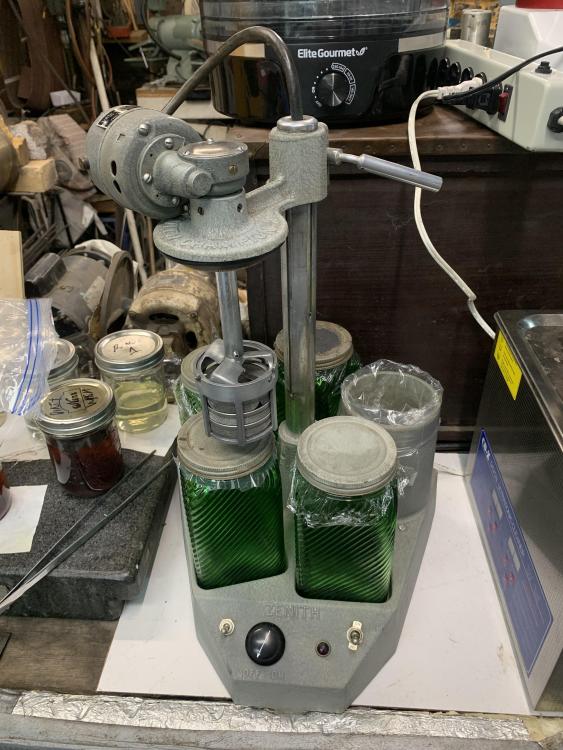Leaderboard
Popular Content
Showing content with the highest reputation on 02/22/24 in all areas
-
Regardless of what the cause of the problem may be, as long as the option is open to return it to the seller, I would say return the watch to the seller and let the seller sort it out. As soon as you open the watch, that option is out of the window and it becomes your problem / responsibility; could be simple & cheap or costly ........ ? AND; a good Rolex shouldn't have any of those problems ...4 points
-
Angle your movement so you can see the impulse face of the pallet stone like this video shows You might find it easier if you hone down the end of your oiler and put a slight bend on it. I find this helps when oiling pallets. This is one of the best YouTube videos on this subject, which will definitely help. It is all about practice. Don't expect to get it right the first few times. I've just had a class of students in today and they were oiling the train wheels jewels for the very first time using stereo microscopes and by the time they got to the dial side and the very last ones they were getting the lubricant in the jewel without painting the top of the oil-sinks. Lubricating pallets is not the easiest thing to do, especially without a stereo microscope. The more you practice, the more you'll get it bang on.2 points
-
Thanks for the welcomes. And apologies in advance if I pepper the forum with dumb questions. I am slowly figuring out this new hobby on my own. Each day brings new wins - and a whole lot of new questions!2 points
-
I keep mine in the jugs they came in and mason jars. I've not had any issues with it evaporating past the seals. One Dip is the only watch cleaning chemical I've experienced that with. I usually do fives, but it's pretty arbitrary. However long it takes to get the job done without doing damage is fine. I usually turn the heater on when I start, but don't really wait for it to get there. I've done it cold as well, and haven't noticed any difference. Rinsing in IPA is probably not as good as the L&R rinse. I doubt it's undoing any of the cleaning progress made, but it's not really gaining you anything either.2 points
-
Since 2017 I've been working, On & Off, on this 1975 Mark II. The story in between would be the size of a novel Some worn parts replaced with NOS, adjustment of the pallet-jewels, old hands restored etc etc etc ....... My next wish is to restore the case, but for that I need to learn new skills and search for additional tools / equipment ..... story to be continued Anyhow, here the current Before and After; Before (2017): Currently (2024); With this speed I hopefully will get old enough to finish it off2 points
-
2 points
-
A test for this; is to oil the stem. A question, hands don't jump out of alignment, do they?2 points
-
Here's the 20 February, 2024 update from Cousins in case they haven't sent you one... Cousins in High Court Next Week Fighting for Parts and Now Fighting for UK Law ALSO! Since deciding last year to serve our High Court claim on Swatch, Cousins has been very active in explaining to the outside world what the consequences of the Swiss verdict will be if it is recognised here in the UK. Of necessity, we have had to stay silent about this work, but as it has now been included as part of our evidence to the High Court, we can reveal more about it. At the end of my last news story (https://www.cousinsuk.com/page/news), I outlined that the Swiss decision affects wholesaling in any industry, but the true extent of its consequences go way beyond that. At the simplest level, the ruling opens the door to manufacturers being the sole source of supply for anything, which in turn gives them the power to control or eliminate wholesalers and other intermediate markets such as retailers or repairers, with potentially devastating consequences for long standing government policies on consumer rights, sustainability, and the right to repair. However, at a higher level are two issues relating to the function and creation of UK law. The basis of UK and EU Competition Law is the protection of consumers, which in all but the most exceptional of circumstances is achieved by maximising competition in every market, to give consumers the capability to choose the price and service levels that suit their individual requirements. Consideration of the effect on consumers and competition is the core principle of the law itself and has been at the core of every judgement in Competition Law, but the Swiss verdict creates a precedent which eliminates that principle. If that is acceptable in one part of the law, inevitably it will be argued that other parts of the law need not consider the effect on consumers. Setting of precedents is a normal part of the legal process, but those precedents have to be in line with principles of the law, not acting in reverse of them. The Swiss verdict has raised serious issues about firstly, whether or not the actions of the Swiss courts comply with the treaties that exist between our countries, and secondly whether it is acceptable for a foreign jurisdiction to interfere with the base principles of UK law. Cousins very quickly brought these issues to the attention of the Department for Business and Trade (DBT), and our Trade Attaché in the British Embassy in Switzerland, both of whom reacted positively and promptly. The issue was extremely pertinent at DBT, because the Minister for Trade was just commencing talks on a new Free Trade Agreement with Switzerland. Our local MP, Sir John Whittingdale OBE, came to our offices for a full briefing within 48 hours of being notified of the issue, and with his assistance the matter has now been brought to the attention of no less than six government ministers and four departments, including the section within the Ministry of Justice that deals with international treaties. In addition, Cousins has been very active in engaging with the UK Competition and Markets Authority, who have examined in detail the papers relating to next weeks’ High Court hearing and have taken the highly unusual step of writing to us to indicate their potential interest in the case if the Swiss decision is not recognised. In itself, this might seem to a layman to be a rather ineffectual action, but it has much greater significance in the legal world. “Global Competition Review” is probably the leading subscription news service for Competition Law professionals in the UK. They are frequently the first source for their readership on the most significant stories in that sector, and with their kind permission reproduced below is an article they published ten days ago. You will be pleased to learn that the article very quickly made its way into their “Top 5 Most Read” list. I hope to get one more update out to you before next week’s hearing. Regards, Anthony2 points
-
thanks for leting me join, but to be fair I am looking for some help and thought you lot might be able to help hopefully thanks voith1 point
-
I have not sold on eBay for many years but recently sold some letterpress printing type + cases in an auction and sold them for £20. In my opinion at absolute bargain but that what rules are etc,etc. But I actually received £15.00 yes that’s right eBay now takes 25% commission. Today eBay have announced further increases as follows: What’s changing? From 8 April 2024, this new regulatory operating fee will apply to all sales from listings on the following sites: UK, Austria, Belgium, France, Italy, Ireland, Netherlands, Poland, Spain, and Switzerland. How the regulatory operating fee is calculated This fee is calculated as a fixed percentage rate (0.35%) of the total amount of the sale (which includes the item price, postage, taxes and any other applicable fees), and is subject to Value Added Tax (VAT), where applicable. This fee is in addition to any final value fees and selling-related fees you currently incur. So please be aware selling on eBay when someone makes a cheeky offer you are getting 25.35% less than actuals. In the UK Facebook marketplace is free1 point
-
I see all the suggestions above as what we would like, not what would be innovative and impressive for the young man to achieve in the current IT world. my suggestion would be to look at a machine learning application to diagnose mechanical Watch issues from an input form. something a bit different and also challenging whilst being very relevant in today’s IT world. Tom1 point
-
Hi. I’m Mark from Toronto. I have always loved watches though it recently occurred to me that I didn’t know how they actually worked (besides the fact that you would a spring that powered a lot of wheels which somehow kept time). While looking for answers on the net I came across sites and videos about watchmaking and maintenance. Well, one thing led to another and before I knew it I had bough tweezers, screwdrivers, and a bunch of other stuff (it keeps accumulating!) and have been learning to work with my first movement. No idea where it will take me or how far I’ll go, but I wake up every morning excited to get to my work bench and learn new stuff.1 point
-
Hello y'all My name is Billy, and I am retired Electronic Engineer. Always had lots of fun restoring old clocks as a hobby and recently got more interested in old pocket watches. I enjoy reading all the posts on this forum and thought it might be time to sign up. All the best Billy1 point
-
No, it only stops one every 12 or 24h - but always around 3/4 o'clock. I'm testing that right now.1 point
-
Does it stop every three minutes like your time-lapse shows, or at that particular point where the minute hand gets to the 5 marker?1 point
-
1 point
-
@nevenbekriev I appreciate you taking the time to thoughtfully reply (John too). I actually got a good chuckle from your description of my escapement diagnosis skills--no disagreement there. As an elder (read: old) trial lawyer I've been called much worse, as you might imagine. Some of us are not very mechanically inclined (me, for example) and can't devote tons of time to the hobby so our learning curve is much steeper and quite frankly some of the more complex theory is just beyond my desire to learn at this point in my process. That will change as I build up some confidence in doing the basics. That said, I really appreciate you and others taking time from your busy schedule to help us novices; you don't have to, but you do. If I can ever repay the favor, just let me know; probably nothing to do with watches of course but if you'd like learn about the law or how to fix a fountain pen, I'm on it. I will make the inspections you mentioned before I buy a donor table and will definitely put the wire in the case. I also have some watch repair books, so i'll read up on the escapement process. Thanks and enjoy your day.1 point
-
@Knebo, there is difference in behavior when the crown O-ring is tight and the cannon pinion is tight: if the resistance is from the cannon pinion, the free play in the gears when crown rotates forward/reverse fills like no resistance for some angle of rotation of the crown. If the crown is tight and the cannon is loose, then no such free play will exist. Another thing: If the movements work correctly but the hands stay in place, then the second hand must work correctly too and if observed frequentlyand compared to some quartz watch, this may help to understand what happens. It is possible if the rotor bearing is worn, the rotor to touch the balance wheel in some position of the movement, thus stopping the movement for a while1 point
-
Hello, I have this old Timex M23 watch which I took apart, cleaned and now I am trying to put it back. The main problem I am experiencing is that I am not able to put back the little upper spring and then fix the upper plate correctly. One way or another, the spring (marked on the photo) is just not in the right place. After several attempts, I found service manual for this model. According to the manual, I have to remove the balance complete from the plate, assemble everything else and at the end but the balance back. This seems logical, but the balance is connected to the plate by "hairspring wedge pin". The pin is small and I am just not sure how to remove it. I also bought the same used movement, because the idea was to simple replace it. However, the movement that I bought is gaining about 2 hours a day, which leads me to believe that the movement is pretty dirty and the oil has dissipated as well. So, I would need to take it apart again, clean and oil it. Because of my previous experience, I can not do that, since I will end up with another movement I can not put back together. Any idea how to properly remove wedge pin? Or should I should remove the dial and hands, soak it in cleaning fluid and try to oil it from the outside? There are no jewels in this watch anyway. I understand this is a cheap watch not made to last, but nevertheless I would like to bring it back to life again. Thanks.1 point
-
1 point
-
A software for an electronic luthy tool. Check loyalty rights/ avg shelf worth, before son starts.1 point
-
Could the hour wheel be slipping? I'm a complete newbie at this, but when I recently reassembled a (cheap, not Rolex) watch and forgot (or had lost) the dial washer this is what happened. Dial up with gravity on its side, it ran ok, but if it was dial down I think the hour wheel could move 'out of gear' and so it didn't keep time. Good point above regarding the hands losing alignment - this is what will happen if the cannon pinion keeps spinning as it should but only intermittently engages the motion works to turn the hour hand. (Like I said, complete newbie - laugh/flame away if what I'm saying is complete nonsense)1 point
-
Hello, my name is Daniel. I've been learning watch repair for a while now but i realized theres not much people who i can talk to or ask about watch things and them be able to understand. So here i am! I hope to learn a lot here and if i can help with something i will. Also sorry english is not my main language. Thank you for taking the time to read this.1 point
-
looks good on the timing machine fully wound up but what does it look like on the timing machine 24 hours later? then if we look at the three items what is the difference we see? Fully wound up on the timing machine with limited motion. Sitting calm and relaxed overnight with no movement then I assume on the wrist the watch moves around? We don't get a picture the dial side how closer the secondhand for instance to the crystal? You're asking for gases there is a guess not a good guess but sometimes the hands to rub I would be much more interested in seeing what it looks like on the timing machine after eight hours on the wrist is still have the right amplitude how does timekeeping look.1 point
-
1 point
-
Get him to do it anyway then!!! Hehe.1 point
-
Thank you all for your input. It seems the answer lies with the Moeris 10.5’’’ staff with this particular calibre. I will need to slightly reduce the thickness of the friction fit / collet seat.1 point
-
A database combining Ranfft, Mikrolist etc. With a function where let's say I bought a brand x watch, after searching I can't find which movement is inside, I can input the data. It could also list compatible spare parts and other brands with the same movement.1 point
-
I considered this, but there are several versions out there already... maybe a version of timegrapher for clocks, or does this exist also?1 point
-
What‘s about a timegrapher software? The theory behind is documented well.1 point
-
There is no other way than to unpin the hairspring and remove the balance wheel to access the two screws and remove the capstone. Reassembling the capstone, regulator arm and balance cock without smearing the drop of oil can be challenging at times. Ever since I got my auto oiler, I reassemble the balance assembly and oil through the jewel hole. It is almost impossible to over-oil the capstone this way as any excess oil would remain on top of the jewel hole. I then dab off any excess oil with a root canal paper point.1 point
-
I'm dont understand why your friend doesn't send it back ?1 point
-
Usually loose canon pinion makes moving the hands feel loose, so if it feels right it likely to be right. Theres also other possibilties, like a broken gear teeth in minute train, loose gear train bridge , and the like. The worst would be having to repair the mainplate, a loose locating pin, and the like. You have a lathe, don't you ? I go ahead and attack the watch, if you don't you keep wondering what the issue was. Rgds1 point
-
You forgot the photo, without opening it, even with suggestions, how will you know for sure what the issue is?1 point
-
Good advice, remove the back, it's a snap on. There should be a notch to put a case knife or thin blade in. We can advice how to remove the movement and then you could soak the case and bracelet together.1 point
-
Hi all, I'm Harry 23 years of age from the London area.. I have recently gotten into the world of watches. Currently have a Huawei smart watch, Emporio Armani full black, Tag Heuer Formula 1 Quartz 43mm and a Omega De Ville Ladies. Happy to be part of the community Cheers! Harry.1 point
-
Just retired and found a bunch of YouTube videos that really sparked an interest in watchmaking. My wife and I both have our grandfathers old Elgin pocket watches that I’d like to get running but I have much to learn before I open them up.1 point
-
Yes, thats what the food dehydrator is for. Works quite well. 3d printed caps would have to be solvent compliant, which might be a bit costly, But I need something better than ULO plastic liners. Without the plastic liners the old liners are saturated and crumbling cardboard, which will contaminate the cleaning solutions without a liner/ barrier.1 point
-
Using water based cleaner isn't necessarily a death sentence. I've mentioned the Greiner cleaning machine that I used for years; it used water based cleaner, and then isopropyl alcohol for rinse- but it has a built-in distiller, so there was an endless supply of clean alcohol, and the distillation column had a fan below blowing the warm air (filtered) up to dry the parts. That machine never caused rust. Greiner hasn't made the specific cleaning solution in years, but they do make a water based cleaner for watch parts, their GS cleaner. I get what I understand is the same concoction, a concentrate, from Hegel. The old Greiner machine has been replaced with a modern Greiner ACS900, using petroleum based cleaners, but in the workshop many parts get cleaned regularly with the Hegel cleaner, rinsed in water then alcohol, and no rust issues. The clock cleaning solution I use is also water based, from a formula out of the Finnish watchmaking school; again, no rust- but parts come out and get rinsed in hot water, then immediately alcohol, and then immediately on forced air dryer. The above solutions are "pro"; I haven't tried dish soap or anything similar. The Hegel cleaner is about 50 bucks a liter, but makes 20 liters, so really not expensive.1 point
-
I've had flash rusting occur very quickly, it seems to jump straight onto the smallest of areas. Exposure to air inbetween getting the part dunked in ipa has to be minimal. Weak concentration of ipa could be a cause. Its mega important to get warm airflow introduced quickly. I just wont entertain any cleaning with anything water based, i think the process with it needs to be ideal for it to work. Its caught me out a few times to ever try it again.1 point
-
Thank you for your introduction and welcome to this friendly forum. We all look forward to your contributions and continued involvement. You might find this helpful. 704789946_TZIllustratedGlossary(2).pdf1 point
-
1 point
-
1 point
-
Message from Anthony Cousins:- At Long Last the Fight for Parts Supply is Going to the High Court Cousins battle with the Swatch Group is now heading to the High Court in London. However, after the ruling in Switzerland, the case in London commences with arguments that you might not be expecting. Anthony Cousins explains the details below:- It has been more than a year since I last updated you on our legal battle with the Swatch Group to overcome their refusal to openly supply spare parts. Doubtless some of you will think that we have gone quiet because we have given up, but nothing could be further from the truth. When we started this process, I made a commitment to keep fighting until we won the day, or had exhausted every available means. That fight has continued and has now reached a significant milestone. In December of 2021, the Commercial Court of Bern gave a verdict that ran contrary to the most fundamental principle of British and European Competition Law, which is that no matter can be decided without consideration of the impact upon UK consumers and competition in the UK. We supplied the court with overwhelming evidence to show that watch owners are suffering substantially higher prices for servicing and repair, are waiting significantly longer for their watches to be returned, have an extremely limited selection of locations where they can obtain service, and are frequently obliged to have work done to their watches that is not necessary and that they do not want. We also asked the court to engage independent expert witnesses to advise them on how British Competition Law is applied and decided. The Bern Court refused to consider any of that evidence, declined to employ any expert witnesses, and determined that Swatch was “objectively justified in changing its supply chain. In so doing, the Bern Court did not consider at all any of the evidence we provided on the impact of Swatch’s cessations of supplies on UK consumers and competition in the UK. As we reported in August of 2022, we appealed against this ruling to the Swiss Federal Supreme Court (FSC), pointing out in detail why the interests of consumers and competition are always paramount. Our experience of the FSC has not been good. Twice before the Bern court ruled in our favour, and on both occasions the FSC changed the Swiss Civil Code and found in favour of Swatch. Although our arguments were entirely correct, it came as little surprise when in September of last year, the FSC refused our appeal and found again for Swatch. It is outrageous that a foreign jurisdiction thinks it can alter the basis of a UK law, without even asking for any opinion on this from this country, and at the same time ignore a wealth of factual evidence that has been placed before it. I have no doubt that the Swiss judicial system is not a suitable forum to give rulings on British and European law, but explaining in detail why is an issue for another day. However, for you as the reader to understand what actions we have taken subsequently, it is necessary that you understand some basic points about why the Swiss had the right to rule on British and European law in the first place. Brexit had not happened when the case started back in early 2016, and an agreement existed between the EU, Switzerland, Iceland, Norway, and Denmark, called the Lugano Convention. This treaty deals with how cross border disputes between parties in the different countries should be managed in the courts, and in simple terms stated that all the signatories to the convention recognised each other’s judicial systems as being equal, and gave each other the right to rule using whichever country’s law was applicable. In our case this meant that a dispute between a British company and a Swiss company about a matter of British (and EU) law could be dealt with by either country’s courts. When we first wrote to Swatch about taking legal action, we told them that we would be taking them to the High Court in London if they did not resupply us within three weeks. To avoid that, they brought a claim against us in the Bern court without, however, telling us that they were doing this. But this did mean that the proceedings were supposed to be dealt with using British and EU law, not Swiss law. I am not going to detail the whole case again here, but for what follows to make sense, there are four significant points I must explain about how this relates to the Lugano Convention in our case. Firstly, the UK was (when the case began) bound by the Lugano Convention because it was a member of the EU, but when Brexit happened half way through our case, the UK was no longer part of the convention. The UK government applied to join the convention, and whilst waiting for a decision from the other members, held that any case started under Lugano rules would continue to be bound by them. Over a year later, the EU was still refusing to agree that the UK could join the convention, so the rules applicable in our case became somewhat less clear, and indeed before the final appeal was heard at the FSC, the Swiss courts declared that the convention was no longer applicable, and the final appeal was conducted under different rules. Secondly, all EU members use the same wording in their competition laws that appears in the EU Treaty, the only minor and required difference is that where the EU Treaty says ‘in the EU’, the UK Competition Act says ‘in the UK’. As part of the Brexit process, although the basics of UK Competition Law stayed the same, Section 60a was added to the Competition Act which allows UK law to deviate from EU law, so the two cannot be considered to be the same. Thirdly, under the terms of the Lugano Convention, if a matter is decided in one country then all the others are bound by it, and the courts of those other countries cannot review or overrule the decision, or hear the matter again, even if they are certain that the foreign decision is wrong. This is part of a wider legal principle known by the Latin phrase “Res Judicata”, which loosely translates as “This has already been Judged”. The point of this is to prevent a matter being repeatedly litigated, and to avoid conflicting judgements in different countries. Fourthly, under the terms of the Convention, the only action another member country can realistically take, is to refuse to recognise the foreign decision if it is ‘contrary to public policy’, but this has to be something other than the law applicable to the decision concerned, for example if one of the parties right to a fair trial was breached. As highlighted in the point above, it is not possible to argue that the Swiss courts did not apply Competition Law correctly. That would be ‘reviewing’ the case, which is expressly forbidden. Keeping these four points in mind, the actions that Cousins have now taken can be understood. When Swatch wrote to us in 2016 to say that they had lodged their claim with the Bern Court, there was a delay whilst we were waiting for the papers to be served on us. In that time period, we lodged our claim at the High Court in London in the expectation that the proceedings in Switzerland would not be admissible. Normally, a claimant has only three months to serve the papers on the other party, but because of the extraordinary nature of how the Swiss proceedings played out, we applied to the High Court for extensions to that time period, and in the end were granted a very exceptional ten of them. This meant that when the final FSC verdict came in, we still had a live claim that we could use. After lengthy consultation with our UK legal team, we identified two ways in which we believe the UK courts have valid reason not to recognise the Swiss decision, which in turn would allow us to bring the case again in the High Court, and have a British Judge decide a matter of British law concerning British markets and British consumers. Firstly, both the UK and Switzerland are signatories to the European Convention on Human Rights (ECHR), and it is contrary to public policy for the terms of that convention to be ignored. A crucial part of the ECHR is that parties in a legal action ‘have the right to be heard’. For this requirement to be met, it is vital that any evidence offered is considered by the court hearing the case. This did not happen in Bern. Secondly (as I explained above) after Brexit, UK Competition Law had the right to deviate from that of the EU. The Bern court did acknowledge the addition of Section 60a to UK law, but continued to regard UK law as being the same as that of the EU, and made its judgement on that basis. It is therefore true to say that UK Competition Law has not been applied at all, so it is not correct to claim that the matter has already been judged. In July this year, we served our High Court claim on Swatch (UK), and had the High Court start the process of serving on Swatch Group and ETA in Switzerland. The process of serving on foreign companies takes a few months, but Swatch UK received the claim within two days, and were required by the rules to enter a defence within six weeks. As we expected, Swatch responded by stating that this matter was already decided, and they applied to the High Court to have the claim struck out. We objected to the application on the grounds that I have explained above, and after some debate back and forth, it was agreed that there would be a one day hearing before a Judge in the High Court in order to decide whether or not the Bern verdict should be recognised in UK law. In simple terms, if the Bern decision is recognised, then there is little else that we can do. However, if the Bern decision is not recognised, then our current claim will continue and a longer hearing will be timetabled at which the evidence will be considered, and a ruling will be given under British Law. We are very confident as to what that ruling would be. On Monday of this week the administrative team at the High Court processed possible dates for the hearing, and it has been confirmed to us this will be the week commencing 26 February 2024. Whilst I am sure that there will be much interest within the watch repair world, this case has far greater significance. The Bern decision is not confined to watch parts, but covers wholesaling and other forms of distribution of any product in any market. If that decision is recognised, then small businesses in every sector who can not compete with the buying power of their larger counterparts will find themselves either out of business, or under the direct control of the manufacturers, and the big loser in the end will be the consumer. I never imagined when all this began that Cousins would end up fighting to uphold the basic principles of UK business law, but if that is what we need to do in order to preserve the right of our customers to continue to offer their services to UK consumers as they have done for Centuries, then that is what we will do. I will keep you updated as matters progress. Regards, Anthony1 point


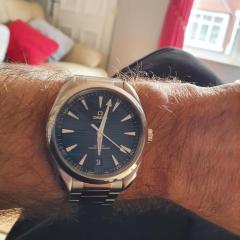
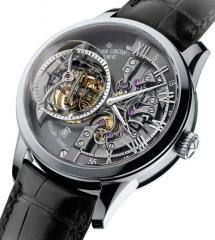
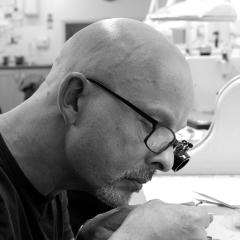
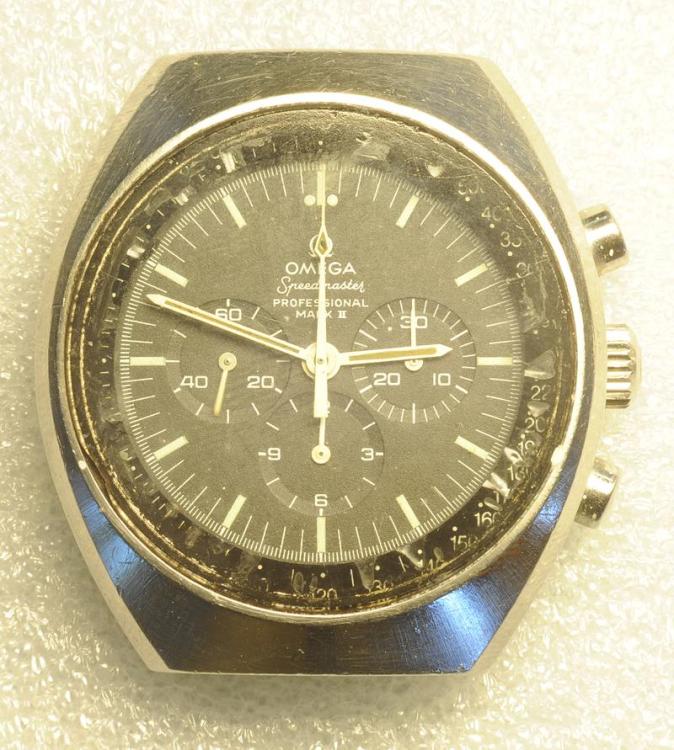
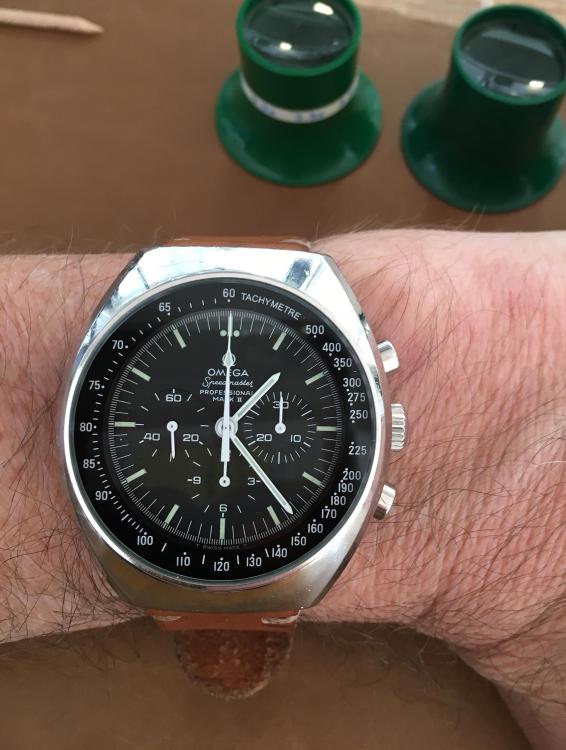
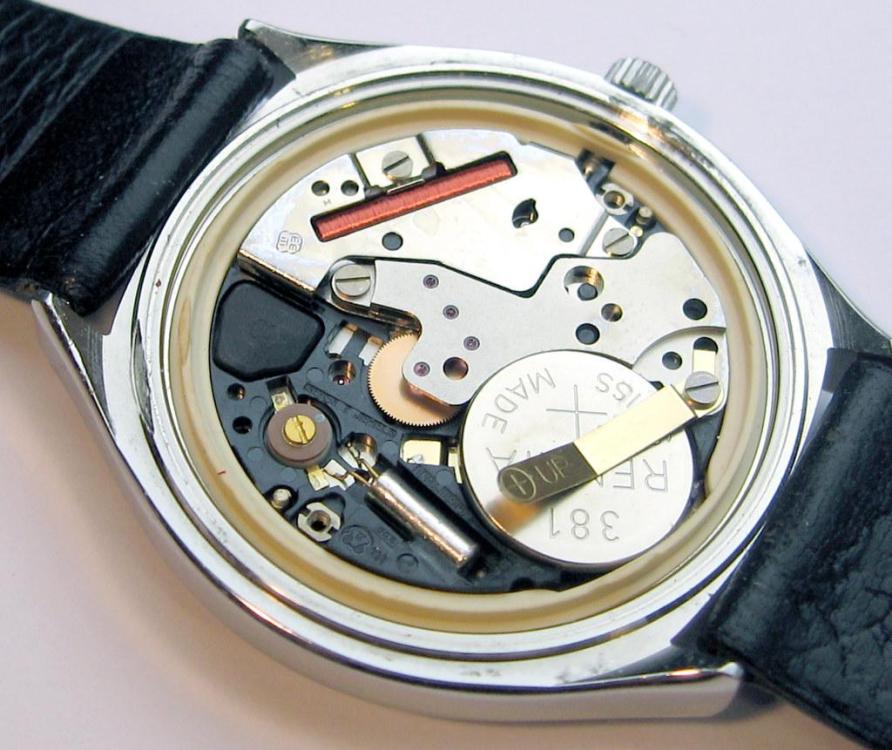
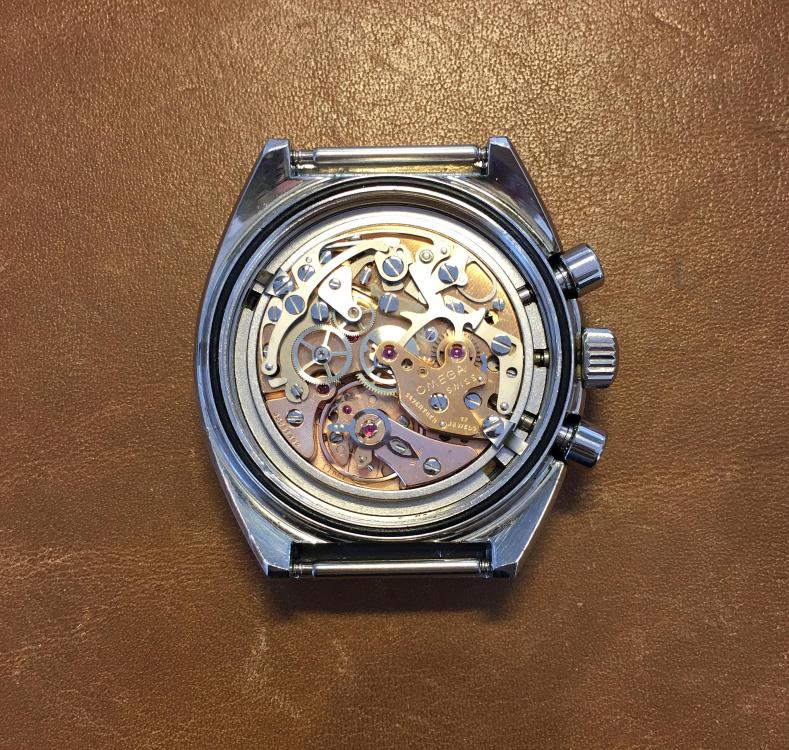


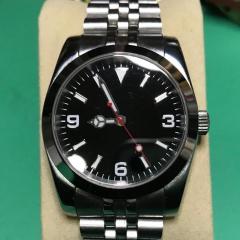

.thumb.jpg.cb17a66989f1e796fd4217db2e9ca9df.jpg)

